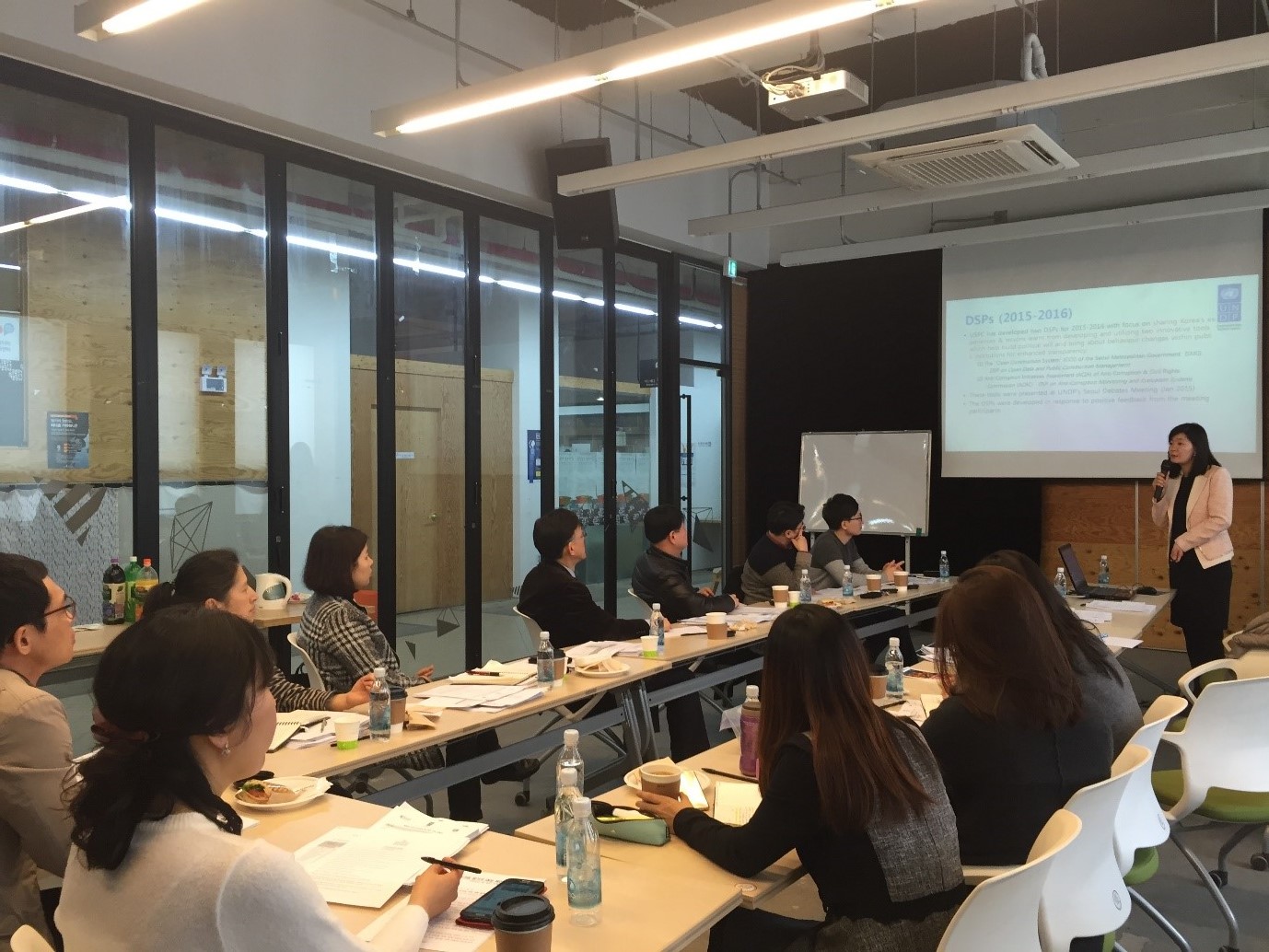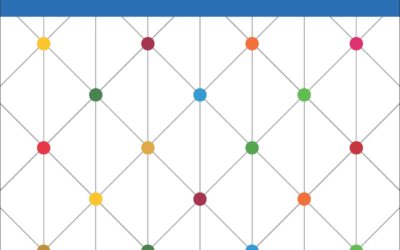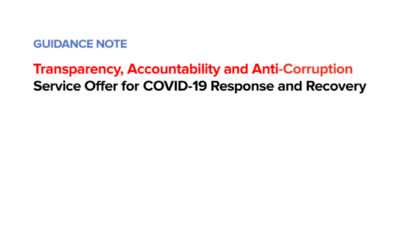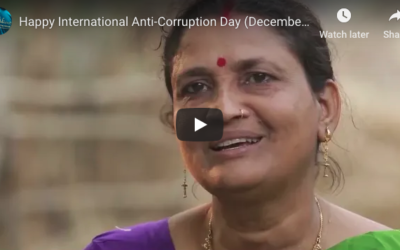Our experience shows that we can ensure a more transparent construction sector by simply informing people about the kind of work being carried out in their neighborhoods. By disclosing SMG’s construction work information on the Construction Informer website, all the stakeholders, from private contractors to the responsible Seoul government officials, came to adopt a more transparent, responsible, and accountable administration of our public construction development.”
–Mr. Won Soon Park, Mayor of Seoul
2 December 2015 UNDP-SMG workshop on Public Construction Transparency
The UNDP Seoul Policy Centre (USPC) and the Seoul Metropolitan Infrastructure Headquarters (SMIH) of the Seoul Metropolitan Government (SMG) undertook a full-day workshop to discuss the most effective ways to share with developing countries Seoul’s experiences and lessons learned from its Clean Construction System (CCS) through USPC’s Development Solutions Partnership (DSP) on Open Data and Public Construction Management for efficiency, transparency, and integrity in the public construction sector.
Introduced in 2011, CCS is an effective technological and institutional approach to enhancing transparency, efficiency, and the protection of construction workers’ rights in the public construction sector. The system won the prestigious UN Public Service Award in 2013, in recognition of its innovation and potential for application in other countries.
The workshop was organized to strategize how to provide follow-up support to countries that had participated in the International Workshop on Public Construction Transparency, co-organized by USPC and SMG on 2-4 December 2015, which had shared CCS with some 70 overseas participants from 20 countries around the world.
Based on the demand from the workshop participants for sustained partnerships and support, USPC and SMG in partnership with GAIN had released a Call for Expressions of Interests in February 2016 to solicit proposals from these countries, in order to provide advisory and technical support, combined with seed funding, for their application of the learning points from the December meeting. Almost all of the eligible countries had submitted their proposals, thereby making the selection process very competitive.
At the workshop, participants intensive discussions with Seoul Government partners on how to design and implement effective triangular cooperation among UNDP, SMG, and partner countries. Participants also deliberated each of the submitted proposals against the a set of evaluation criteria l that include implementation opportunities and capacities in candidate countries, project sustainability and ownership, availability of necessary expertise and resources, and quality of the proposed work plans.
Support will be delivered for the period of 2016-2017 to a maximum of five countries selected through this competitive process following further in-depth discussions. DSP partner countries will apply Korea’s CCS and lessons learnt shared at the Workshop, and implement various initiatives to promote more transparent, efficient, and accountable management of the public construction sector through at the country-level, with Seoul’s CCS as a reference point.
Since the early 2015, the UNDP Seoul Policy Centre (USPC) has been partnering with the Seoul Metropolitan Infrastructure Headquarters (SMIH) of the Seoul Metropolitan Government (SMG) and the UNDP Global Anti-Corruption Initiative (GAIN) to share Seoul’s CCS under the DSP. The ‘Open Data and Public Construction Management’ DSP is one of two DSPs UPSC is currently conducting alongside the ‘Anti-Corruption Monitoring and Evaluation Systems’ DSP in partnership with Korea’s Anti-Corruption & Civil Rights Commission (ACRC).
Initiated in 2014, DSP is a new approach for USPC, acting as a knowledge broker and facilitator, to connect Korea with the wider UNDP network and enhance the Korea-UNDP partnership on strategic development issues globally. DSPs work through triangular cooperation among Korean Government institutions, UNDP, and partner countries.
The workshop took place on 14 March, 2016 in Seoul, Korea.





